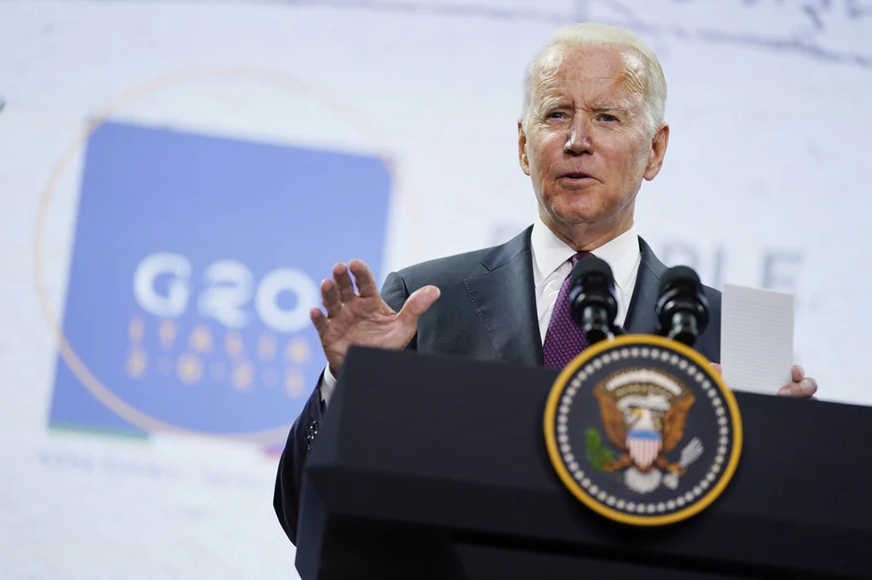
US President Joe Biden called Switzerland a tax haven during his State of the Union address in April Copyright 2021 The Associated Press. All Rights Reserved
A major global corporate tax deal agreed by more than 130 countries in October aims to curb tax abuse by multinational companies, but many important details remain on how this will be implemented.
When US President Joe Biden called Switzerland a tax haven earlier this year, Swiss authorities promptly rejected the label, highlighting sweeping reforms that have brought the country more in line with international standards.
The definition of a tax haven is changing though. “Some 10 or 20 years ago, people would have thought of a tax haven as combining both low rates of tax with levels of secrecy and privacy,” says Daniel Bunn from the US-based thinktank the Tax Foundation. “In the last few years, some academics and politicians have changed the way they think about tax havens to focusing on where there’s a lot of profits and not as many employees or assets.”
In a live discussion on Instagram, Bunn offered perspective on Switzerland’s reputation as a tax haven, whether the global corporate tax deal will lead companies to pay their “fair share” and what are some possible loopholes and caveats in the deal.
Corporate tax rates have declined globally over the last 40 years. In 1980, the unweighted average worldwide statutory tax rate was 40.11%. Today, the average statutory rate stands at 23.54% according to the Tax Foundation’s recent review of global corporate tax ratesExternal link.
Bunn says that the deal is trying to curb “the real pressure for profit shifting and companies seeking out the lowest rate possible”. While he thinks that the deal will impact how much and where the largest companies pay taxes, there remain questions about how the new rules will fit with existing rules, how countries will adapt domestic laws and what kind of new distortions and behaviours will emerge.
Daniel Bunn is the Vice President of Global Projects at the Tax Foundation, where he researches international tax issues with a focus on tax policy in Europe. Prior to joining the Tax Foundation, Daniel worked in the US Senate developing legislative initiatives on tax, trade, regulatory, and budget policy.
If you missed it live, you can re-watch our discussion below. Follow us on InstagramExternal link for more live talks, photos and videos.
Full story here Are you the author? Previous post See more for Next postTags: Featured,Multinationals,newsletter



























